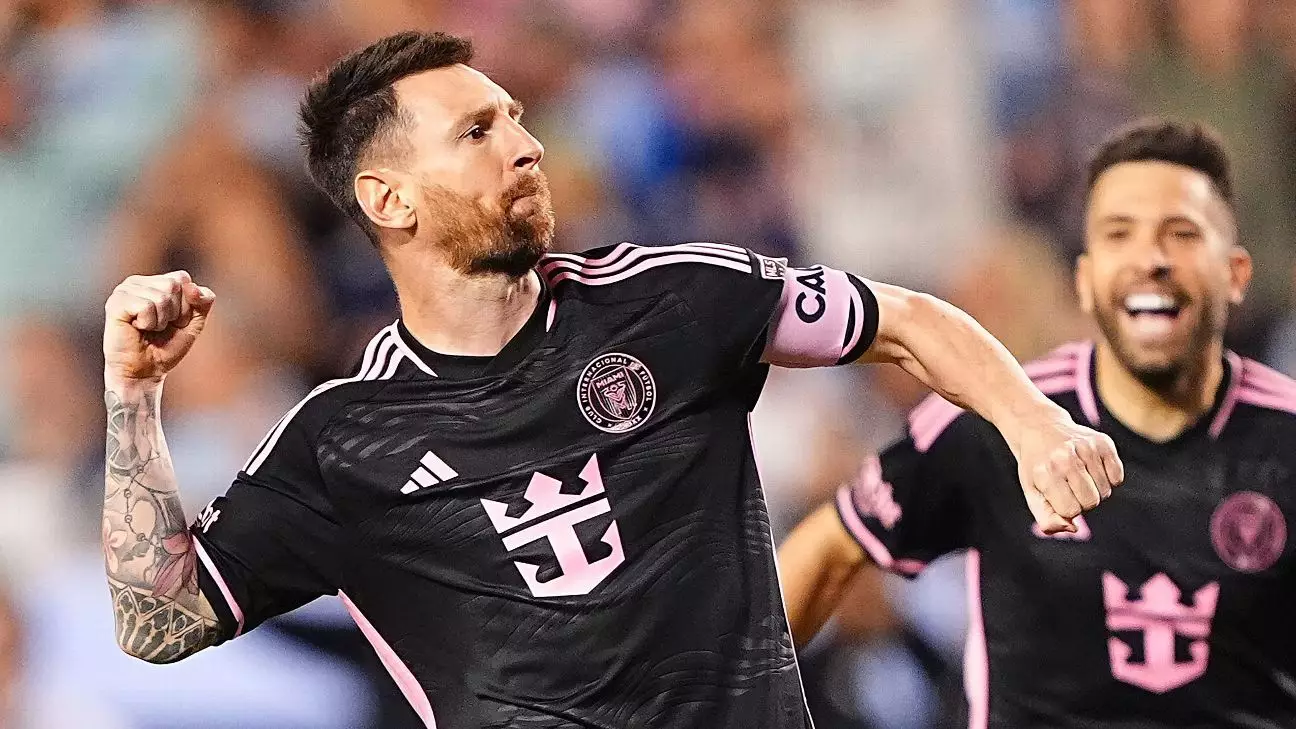The debate surrounding who deserves to be named the Most Valuable Player (MVP) in Major League Soccer (MLS) is a perennial topic of discussion among fans and analysts alike. The MVP award, seen by many as the pinnacle of individual achievement within the league, often invites varying interpretations of its criteria. While some argue that the award is reserved for the “best player” overall, others believe it should go to the key player on the best team. In 2024, with Lionel Messi being awarded the MLS Landon Donovan MVP, these discussions have reignited, leading to further scrutiny of Messi’s performance and its implications for the award.
Central to the MVP debate is the philosophical question: What does “value” truly mean? The discussions range widely; is it simply numeric excellence, or does it hinge more on context—like leading an underdog team to success? Analysts often find themselves navigating through a maze of metrics and performances to assess a player’s influence on their squad and, by extension, on the league as a whole. The excitement surrounding Messi’s MVP announcement certainly exemplifies the complexities involved in determining who rightfully deserves recognition.
Statistically, Messi’s on-field impact cannot be disputed. He recorded 36 goal contributions, leading all players in the league. This stunning achievement includes 20 goals and 16 assists, demonstrating his ability to not only score but also create opportunities for teammates. By all observable metrics, one could argue that Messi rightly deserves the MVP title this season. His influence not only propelled Inter Miami to a record-breaking Supporters’ Shield victory but also made them a highlight reel for soccer fans everywhere.
However, numbers tell only part of the story. Messi participated in just 19 of Miami’s 34 regular-season matches, a statistic that has raised eyebrows across the soccer community. With international duty and injuries limiting his play, Messi clocked in at less than half of the available minutes this season—1,486 to be precise. Compared to historical MVP winners across various sports, Messi’s participation rate and minutes played stand out as comparatively low. This raises the pressing question: Does the impact exhibited during limited play justify the MVP accolade, or does it serve as an indication of lesser involvement?
When we look deeper into Inter Miami’s performance, the numbers reflect an interesting dichotomy. With Messi on the pitch, the team performed significantly better, winning 12 games, drawing 6, and losing only 1, resulting in a formidable 2.7 goals scored per game. However, when Messi was absent, Miami boasted a respectable 10 wins but with a marked decrease in scoring efficiency. The data suggests that Messi undeniably enhances team performance, yet it raises the question of whether his presence was essential for Miami to achieve what they did.
One cannot discuss Messi’s influence without acknowledging the significant talent he has attracted to Inter Miami. The gravitational pull Messi exerts on player recruitment is immense, making it unlikely that stars like Luis Suárez and Sergio Busquets would have joined the club had Messi not been present. This influx of talent enhances Inter Miami’s overall competitiveness, allowing the team to shine brightly in a league that often boasts its own fluctuating fortunes.
Conversely, without Messi, Miami may have found itself in a much different situation—one more akin to lower-tier clubs struggling for playoff positioning. The lineup crafted around Messi allows for a fruitful synergy that ultimately helps elevate the team to heights previously unattainable. Therefore, while one could argue that a player should be judged solely on performance metrics, it’s equally important to consider the broader implications of their presence on and off the field.
In examining the field of MVP candidates for 2024, it becomes evident that Messi’s competition didn’t present a genuinely formidable challenge. Other notable players like Christian Benteke and Evander had impressive individual seasons; nevertheless, their teams faced hurdles that diminished their respective claims for the award. The standout performances from these players couldn’t eclipse the holistic impact that Messi had by merely stepping onto the pitch. His unique blend of star power and technical brilliance solidified his status as the preeminent player in the league.
While the debate over the MVP in MLS may continue to evolve, Lionel Messi’s award for 2024 serves as a compelling case study. The discussions surrounding his selection not only highlight the variability in defining value in sports but also reflect the broader dynamics within the league. As Messi’s presence continues to reshape MLS, fans, analysts, and players will grapple with how to quantify the weight of one player’s influence on the game and the league’s future. Whether viewed through a lens of statistics or team dynamics, Messi’s caliber remains unparalleled—an assertion that reinforces his MVP award for the season.

